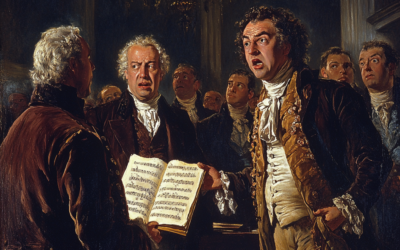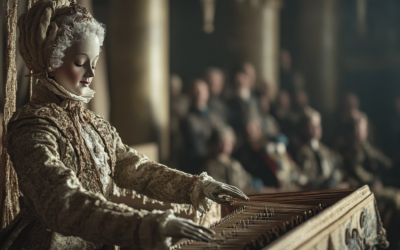Teaching Mozart at Bocconi University
A Fresh Look at Word and Music
We delivered a four-hour lecture on Mozart at Bocconi University, showcasing unpublished music by Gasparini, Gatti, and Tozzi while comparing textual and musical treatment with Mozart’s works. Unseen variants from Le Nozze di Figaro were also revealed.
Mozart: The Fall of the Gods
This book offers a fresh and critical look at the life of Wolfgang Amadeus Mozart, challenging the myths that have surrounded him for centuries. We strip away the romanticised image of the “natural genius” and delve into the contradictions within Mozart’s extensive biographies. Backed by nearly 2,000 meticulously sourced citations, this work invites readers to explore a deeper, more complex understanding of Mozart. Perfect for those who wish to question the traditional narrative, this biography is a must-read for serious music lovers and historians.
"Unseen musical and textual variants from Le Nozze di Figaro manuscripts, presented for the first time, brought a fresh perspective to Mozart’s treatment of words and music."
@MozartrazoM
We recently had the honour of giving a four-hour lecture on Mozart at the prestigious Bocconi University in Milan. The lecture focused on the intricate relationship between words and music, delving into how composers of the Classical Period treated texts in their operas. We were excited to present previously unheard music by Quirino Gasparini, Luigi Gatti, and Giuseppe Tozzi, comparing their treatment of texts with that of their contemporary, Mozart.
The lesson also explored the textual challenges found in Mozart’s works, particularly focusing on previously unpublished variants of both text and music. These variants were sourced directly from manuscripts of the first performance of Le Nozze di Figaro in Vienna, shedding new light on this iconic work. The lecture was met with great enthusiasm, as a large group of students actively engaged with the discussion and the unique materials we presented.
You May Also Like
When the Myth Collapsed
Vienna exposed the myth: La Finta semplice was riddled with errors, and Wolfgang’s supposed opera genius was nothing more than Leopold’s fabrication. With their reputation in ruins, father and son turned to Italy, hoping to rewrite history.
The London Notebook and the Vienna Disaster
Far from the myth of a flawless young genius, Mozart’s London Notebook reveals musical struggles and guided exercises, while the Vienna opera disaster proved that his father played a far greater role in his compositions than legend would have us believe.
Versailles, Vanity, and the Pursuit of Prestige
Leopold Mozart’s letters transformed his son’s European tour into a carefully staged fantasy—filled with exaggerated encounters, fabricated royal admiration, and a relentless pursuit of social prestige. But how much of it was real?
The Fabricated Childhood of Mozart
The legend of young Mozart’s divine genius crumbles under scrutiny, revealing a childhood dictated by Leopold’s ambition, carefully constructed myths, and a relentless pursuit of fame at the expense of genuine artistic education.
The Man Behind the Myth
Leopold Mozart’s legacy has been shaped by myths and hagiographies, but his letters reveal a man more concerned with financial gain and self-promotion than artistic integrity. Was he truly a devoted father, or simply an opportunist?
Constanze vs. The Catholic Church
For over two centuries, scholars have debated the circumstances surrounding Mozart’s burial. Constanze Mozart’s supposed inability to mark his grave, the confrontation with the Catholic Church over funeral masses, and the baffling disappearance of Mozart’s body all contribute to a mystery stranger than fiction. Did a powerful group keep her silent? And what really happened to Mozart’s remains?







